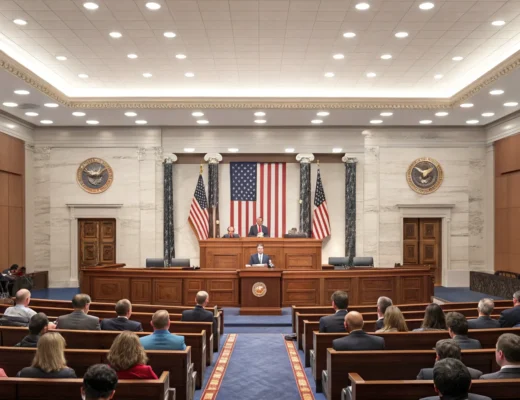Fortune favors the bold, according to research, yet many leaders hesitate or freeze during uncertain times. A Harvard Business School professor has conducted extensive research on courage, concluding that bravery can be learned and developed by anyone in leadership positions.
While risk management helps reduce fear, the research shows it’s insufficient on its own. By studying courageous individuals ranging from prominent CEOs to whistleblowers and everyday heroes, the professor identified specific strategies that enable people to act bravely in challenging situations.
Creating Positive Narratives
The first strategy employed by courageous leaders involves creating positive narratives that guide them through chaotic situations. Many reframe their work as a moral mission rather than just a job. This approach was evident in the actions of PepsiCo’s former CEO Indra Nooyi and BlackRock’s Larry Fink, who both made bold decisions by connecting their actions to larger purposes.
This narrative-building helps leaders maintain direction when facing opposition or uncertainty, providing an internal compass that supports difficult decisions.
Building Confidence Through Preparation
The second strategy focuses on building confidence through thorough preparation. Courageous individuals invest in training, expand their mental tools, and concentrate on factors within their control.
The research showed that people who appear naturally brave often have extensive preparation behind their seemingly spontaneous acts of courage. They develop skills and knowledge that allow them to act decisively when others might hesitate.
Navigating Complexity Step by Step
The third approach involves methodically assessing complex and ambiguous situations. Rather than trying to solve everything at once, brave leaders break challenges into manageable steps and adjust their course as they gain better understanding.
This was demonstrated by whistleblower Frances Haugen, who methodically gathered evidence about Facebook’s practices before coming forward. Her step-by-step approach allowed her to navigate an extremely complex ethical situation.
The research shows that courage isn’t about making one dramatic decision, but rather a series of smaller choices that build upon each other.
Enlisting Support Networks
The fourth strategy involves building a network of allies, mentors, and even critics. Courageous leaders don’t act alone—they seek advice, support, and honest feedback from others.
During the 2008 terrorist attack at the Taj hotel in Mumbai, employees demonstrated extraordinary bravery in helping guests survive. Their actions were supported by strong team relationships and a culture that valued service above self.
The study found that having trusted colleagues who can provide perspective and support makes difficult decisions less isolating and helps maintain resolve during challenging times.
Maintaining Calm Through Self-Care
The fifth strategy focuses on maintaining emotional balance through self-care, rituals, and positive reframing. Leaders who demonstrate courage typically have practices that help them stay calm under pressure.
These might include physical exercise, meditation, or simple routines that provide stability during chaos. Additionally, they often reframe threatening situations as opportunities, which helps reduce anxiety and enables clearer thinking.
The research indicates that emotional regulation is a critical component of courage, as fear and stress can override rational decision-making if not properly managed.
The professor’s findings challenge the notion that bravery is an innate trait that some people have and others don’t. Instead, courage emerges as a skill that can be developed through specific practices and approaches.
For leaders navigating today’s complex business environment, these five strategies offer a practical framework for building the courage needed to make difficult decisions when others might hesitate. By creating guiding narratives, preparing thoroughly, taking incremental steps, building support networks, and practicing self-care, anyone can learn to act more bravely in the face of uncertainty.







